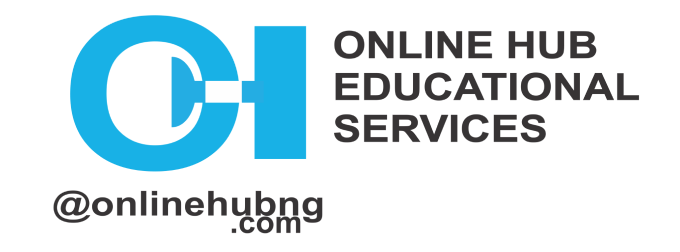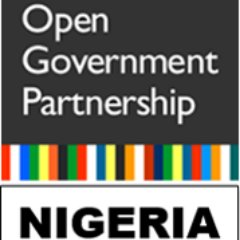What is OGP?
Open Government Partnership is an international multi-stakeholder global coalition of reformers from government and civil society, working to make government transparent, participatory and accountable, to truly serve and empower citizens. It is a platform for governments, civil society actors, and other stakeholders interested in working together to make government more open and accountable. It is a voluntary and domestically driven initiative. By that it means that countries /states are evaluated on progress against goals they set for themselves (and are encouraged to adopt international standards of good practice). Co-Creation is the underlying principle behind OGP.
Why the OGP
The OGP was launched to provide an international platform for domestic reformers (government, civil society, private sector) to make their government more open, accountable and responsive to citizens. It is a community of people who identify local problems, proffer local solution, collaboratively implement the solution to meet international standards and even evaluate progress made.
What are the fundamental principles guiding the OGP?
Transparency: Information on government activities and decisions is open, comprehensive, timely and freely available to the public, and meet basic open data standards.
Accountability: Rules, regulations, and mechanisms are in place that call upon government actors to justify their actions, act upon criticism or requirements made of them and accept responsibility for failure to perform.
Citizen Participation: Governments seek to mobilize citizens to engage in public debate, provide input, and make contributions that lead to more responsive and effective governance.
Technology and Innovation: Governments embrace the importance of new technologies in driving innovation, providing citizens with open access to technology, and increasing their capacity to use technology.
What is Co-Creation?
Co-Creation is the principle of Co-ownership, co-participation, co-creating the OGP process between government and civil society partners.
When did Nigeria join the OGP?
Nigeria joined the OGP as the 70th member in July 2016.
What is the Governance Structure of the OGP Nigeria?
OGP Nigeria is headed by two Co-Chairs and supported by two incoming Co-Chairs (one each for government and CSO) in the spirit of Co-Creation and in line with international standards. The Government Co-Chair is Nigeria’s Honorable Attorney-General of the Federation and Minister of Justice, Abubakar Malami (SAN) while the CSO Co-Chair is the executive Director Media Rights Agenda, Mr Edetaen Ojo. The In-Coming Co-Chair is Senior Fellow, Public Policy and Institutional Development at the Nigeria in an Economic Summit Group, Dr Tayo Aduloju of the Nigerian Economic Summit Group. The incoming Co-Chairs are expected to take over from the Co-Chairs at the expiration of their tenure.
What is the Structure of the National Steering Committee?
The National Steering Committee of Nigeria OGP is comprised of 42 members -21 MDAs and 21CSO partners. The CSOs comprises NGOS, Organized Private Sector and Professional bodies.
What is NAP?
The National Action Plan is a two-year document consisting of reform commitments that OGP member countries must prepare and jointly implement to drive reforms to by government and civil society partners.
How many commitment are in Nigeria’s NAP?
Nigeria’s NAP has 14 commitments cutting across the four thematic areas namely fiscal transparency, access to information, anti-corruption and citizen’s engagement and empowerment. The 14 commitment are:
Fiscal Transparency
- Ensure more effective citizens’ participation across the entire budget cycle.
- Full Implementation of Open Contracting and adoption of open contrasting Data Standards in the public sector.
- Work together with all stakeholders to enhance transparency in the extractive sector through a concrete set of disclosures related to payments by companies and receipts by governments on all transactions across the sector‘s value chain.
- Adopt common reporting standards and the Addis Tax initiative aimed at improving the fairness, transparency, efficiency and effectiveness of the tax system.
- Improve the ease of doing business and Nigeria’s ranking on the World Bank Doing Business Index
Anti-Corruption
- Establish a public register of Beneficial Owners of Companies
- Establish a platform for sharing information among Law Enforcement Agencies (LEAs), Anti-Corruption Agencies (ACAs) National Security Adviser (NSA) and financial sector regulators to detect, prevent and disrupt corrupt practices.
- Strengthen Nigeria’s asset recovery legislation including non-conviction-based confiscation powers and the introduction of unexplained wealth orders.
- Take appropriate actions to co-ordinate anti-corruption activities: improve integrity and transparency and accountability.
Access to Information
- Improved compliance of public institutions with the freedom of information Act in respect the annual reporting obligations by public institutions and level of responses to requests.
- Improved compliance of public institutions with freedom of Information Act (FOIA) with respect to the proactive disclosure provisions and stipulating mandatory publication requirements.
Citizen Engagement
- Develop a permanent Dialogue Mechanism on transparency, accountability and good governance between citizens and government to facilitate a culture of openness.
- Government –civil society to jointly review existing legislations on transparency and accountability issues and make recommendations to the National Assembly.
- Adopt a technology-based citizen’s feedback on projects and programs across transparency.
When is the current NAP expiring?
The current NAP which was approved at OGP Global Summit in Paris in December 2016 will expire in December 2018.
What is the Sub-National Engagement Process of the OGP?
The Sub-National engagement process is the process of states in Nigeria signing up to the OGP in Nigeria, developing and implementing a State Action Plan in collaboration with local civil society organizations and professional groups.
What are the procedures for states to sign up for the OGP?
They will first send a letter of intent to the OGP Secretariat, and when they will begin the process of crafting the state Action Plan as well as constituting the State Steering Committee
What is the Self-Assessment Report?
Self-Assessment report is a mandatory self-evaluation reports that the various leads both CSO and MDAs are expected to produce and send to the National Secretariat.
What is independent Review Mechanism?
It is a process that produces annual independent progress reports for each participating in OGP. The progress reports assess governments on the development and implementation of OGP action plans and make technical recommendations for improvements. These reports, which are drafted by independent experts, are intended to stimulate dialogue and promote accountability between member governments and citizens.
Other important facts about the OGP
- OGP is celebrating its 7th anniversary this year (2018). It was founded in 2011 by 8 countries.
- Today 76 countries with 11 African countries signing unto it namely: Cape Verde, Cote d’voire, Ghana, Liberia, Kenya, Malawi, Tunisia, Sierra Leone, South Africa, Nigeria and Burkina Faso
- It has 2000+ Civil Society Members, 7 Multilateral/Development/Donor Partners and 2500+ commitments.
- Eligibility Criteria: For a government to join OGP, it must exhibit a demonstrated commitment to open government in four key area: Fiscal Transparency, Access to Information, Asset Disclosures, and Citizen Engagement.
Nigeria OGP history
- Nigeria became eligible in 2014
- At the Anti-Corruption Summit hosted by the British Prime Minister at Marlborough house in the UK on 11th May, 2006. President Muhammadu Buhari announced that Nigeria will be joining the OGP.
- On the 27th July 2016, the Honorable Attorney General of the Federation and minister of Justice, Abubakar Malami (SAN) sent Nigeria’s letter of intent to the Global Secretariat.
- On 27th July 2016, Nigeria was confirmed as a participating country by the OGP secretariat.
- In October 2016, Nigeria held a retreat on OGP in Kaduna and started the process of drafting a National Action Plan (NAP).
- Nigeria established a 42-member National Steering Committee made up 21 members from Government and 21 from Civil Society and Private Sector
- Nigeria NAP was approved at OGP Summit in Paris in December 2016
- Implementation of Nigeria NAP started in January 2017.
- Many States are in the process of joining the OGP-Kaduna, Kano and Anambra.
——————————————————————————————————————————————————————
© Copyright statement: All rights reserved.You may reproduce, republish, in whole or in part, this article and any other digital content on this website – subject to crediting OnlineHubNG, keeping all hyperlinks to the sources used and adding this sentence at the end of your publication: “This article is culled from OnlineHubNG.com – a digital content platform for citizens engagement. View the original piece on their website”, with a link back to this page.





